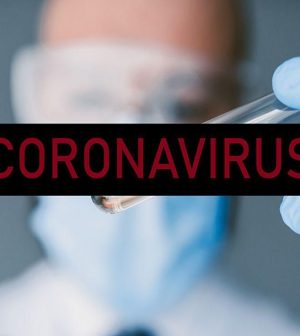- Recognizing the Signs of Hypothyroidism
- 10 Strategies to Overcome Insomnia
- Could Artificial Sweeteners Be Aging the Brain Faster?
- Techniques for Soothing Your Nervous System
- Does the Water in Your House Smell Funny? Here’s Why
- Can a Daily Dose of Apple Cider Vinegar Actually Aid Weight Loss?
- 6 Health Beverages That Can Actually Spike Your Blood Sugar
- Treatment Options for Social Anxiety Disorder
- Understanding the Connection Between Anxiety and Depression
- How Daily Prunes Can Influence Cholesterol and Inflammation
Prior COVID Infection May Shield You From Another for at Least 10 Months

In some good news for those who have already suffered through a bout of COVID-19, a new study finds they may have a much lower risk of reinfection for at least 10 months.
For the study, the researchers analyzed rates of SARS-CoV-2 infections between October 2020 and February 2021 among more than 2,000 nursing home residents (median age 86) and staff. Antibody testing was used to determine whether they’d had a previous infection up to 10 months earlier.
Residents with a previous infection were 85% less likely to be infected during the four-month study period than those who had never been infected, while staff with past infections were 60% less likely to be infected than staff who had never been infected, the findings showed.
Of the 634 people who had been previously infected, reinfections occurred in four residents and 10 staff members, compared with 93 residents and 111 staff among the 1,477 who had never been infected, according to the study published June 3 in The Lancet Healthy Longevity journal.
The study excluded the impact of vaccination by removing participants from the analysis 12 days following their first vaccine dose. The authors are looking at vaccine effectiveness in a separate study.
“It’s really good news that natural infection protects against reinfection in this time period. The risk of being infected twice appears to be very low,” said lead author Maria Krutikov, from the Institute of Health Informatics at University College London (UCL), in the United Kingdom.
“The fact that prior COVID-19 infection gives a high level of protection to care home residents is also reassuring, given past concerns that these individuals might have less robust immune responses associated with increasing age,” Krutikov said in a university news release.
“These findings are particularly important as this vulnerable group has not been the focus of much research,” she added.
According to study senior author Laura Shallcross, from UCL’s Institute of Health Informatics, “This was a unique opportunity to look at the protective effect of natural infection in this cohort ahead of the roll-out of vaccination. An important next step is to investigate the duration of immunity following natural infection and vaccination, and to assess whether this protective effect is maintained against current and emerging variants.”
More information
The U.S. Centers for Disease Control and Prevention has more on COVID-19 reinfection.
SOURCE: University College London, news release, June 3, 2021
Source: HealthDay
Copyright © 2026 HealthDay. All rights reserved.










